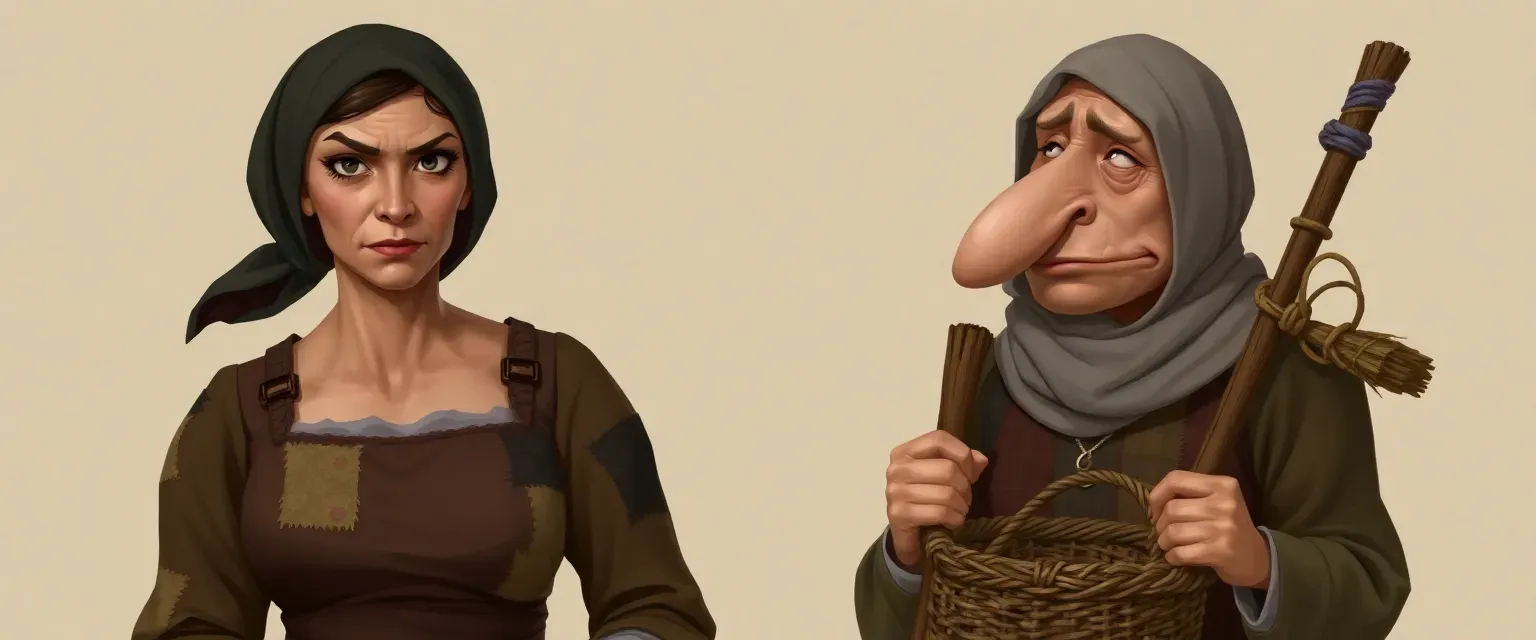In the heart of a small medieval village, where cobblestone streets weave through modest timber-framed houses, dwell two sisters known to all as the Ugly Sisters. Hilda, the elder at twenty-eight, and her younger sister, Greta, aged twenty-five, are fixtures in the village, often seen with brooms in hand, sweeping the streets or carrying baskets laden with goods. Their appearance is striking, not for beauty but for the harshness of their features. Hilda's face is marked by a perpetual scowl, her eyes small and beady, while Greta's visage is dominated by a large, crooked nose and thin, pursed lips. Both sisters are clad in long, patched traditional dresses, their hair covered by worn scarves, a testament to their meager existence.
Their voices, high-pitched and grating, carry far as they gossip about the villagers, their words often laced with venom, especially when directed at the pretty girls who dare to sing and dance. Jealousy burns within them, fueling their unpleasant demeanor. The sisters' lives are steeped in resentment, not just towards the fairer villagers but towards life itself. They work tirelessly, yet their hard work is overshadowed by their bitterness and the constant complaints about their health and the unfairness of their lot.
Hilda and Greta, despite their outward aggression and rudeness, are intelligent in their own right. They align themselves with the village's antagonists, seeing in them a reflection of their own desire for retribution against those who bask in the village's admiration. Their actions are calculated; they seek to undermine the heroes, hoping to gain some semblance of the attention they so crave. Yet, their efforts often backfire, their own nastiness repelling those they wish to impress.
The sisters' lives are a tapestry of conflict. Their jealousy and bitterness create a barrier between them and the rest of the village, isolating them in their misery. They dream of a day when they might be seen, not for their ugliness or their shrill voices, but for something more. Yet, as they continue down their path of spite and alignment with the village's darker elements, they find themselves ever more entrenched in their roles as the village's pariahs.
In the end, Hilda and Greta remain the Ugly Sisters, their lives a testament to the corrosive power of envy and resentment. Their story is one of missed opportunities, of a descent into deeper bitterness, as they fail to see the beauty in their own hard work and the potential for change within themselves.
